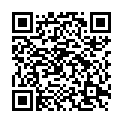|
|
|
| Module code: DFBGE-400 |
|
2V (2 hours per week) |
|
2 |
| Semester: 4 |
| Mandatory course: no |
Language of instruction:
German |
Assessment:
Written exam (50%) + presentation (25%) + informal tests (25%)
[updated 25.11.2020]
|
DFBGE-400 Electrical Engineering - Renewable Energy and System Technology, Bachelor, ASPO 01.10.2018
, semester 4, optional course
DFBEES-403 (P610-0035) Electrical Engineering - Renewable Energy and System Technology, Bachelor, ASPO 01.10.2019
, semester 4, mandatory course, course inactive since 22.09.2023
DFBBW-441 (P620-0573) Business Administration, Bachelor, ASPO 01.10.2013
, optional course
DFBGE-400 Electrical Engineering, Bachelor, ASPO 01.10.2015
, semester 4, optional course
DFBGM412 Mechanical Engineering, Bachelor, ASPO 01.10.2018
, semester 4, optional course
DFBME-403 (P610-0323) Mechanical Engineering, Bachelor, ASPO 01.10.2019
, semester 4, mandatory course
DFBME-403 (P610-0323) Mechanical Engineering, Bachelor, ASPO 01.10.2024
, semester 4, mandatory course, course inactive since 22.09.2023
DFBTO408 International Tourism Management, Bachelor, ASPO 01.10.2018
, optional course
DFITM-403 (P620-0474) International Tourism Management, Bachelor, ASPO 01.10.2020
, semester 4, mandatory course, course inactive since 22.09.2023
DFBI-415 Computer Science and Web Engineering, Bachelor, ASPO 01.10.2018
, semester 4, optional course
DFIW-403 (P610-0189) Computer Science and Web Engineering, Bachelor, ASPO 01.10.2019
, semester 4, mandatory course, course inactive since 22.09.2023
DFBLG413 International Logistics Management, Bachelor, ASPO 01.10.2018
, semester 4, optional course
DFILM-403 (P620-0559) International Logistics Management, Bachelor, ASPO 01.10.2019
, semester 4, optional course
DFILM-403 (P620-0559) International Logistics Management, Bachelor, ASPO 01.10.2022
, semester 4, optional course, course inactive since 22.09.2023
DFBBW-441 (P620-0573) German-French and International Management, Bachelor, ASPO 01.10.2018
, optional course
DFIM-403 German-French and International Management, Bachelor, ASPO 01.10.2019
, semester 4, mandatory course, course inactive since 22.09.2023
DFBLG413 Logistics, Bachelor, ASPO 01.10.2013
, semester 4, optional course
|
30 class hours (= 22.5 clock hours) over a 15-week period.
The total student study time is 60 hours (equivalent to 2 ECTS credits).
There are therefore 37.5 hours available for class preparation and follow-up work and exam preparation.
|
Recommended prerequisites (modules):
None.
|
Recommended as prerequisite for:
|
Module coordinator:
Prof. Dr. Thomas Tinnefeld |
Lecturer: Prof. Dr. Thomas Tinnefeld
[updated 01.10.2017]
|
Learning outcomes:
After successfully completing this module, students will:
- be able to understand short dialogues and identify specific information components
- be able to exchange information orally in more standard situations
- be able to understand shorter texts of written Chinese (characters)
- be able to use the appropriate input software to reproduce longer texts
- be able to use the appropriate input software to produce longer texts in the foreign language
- be able to develop and apply strategies to solve language problems
- be able to assess the prevailing cultural differences in the source and target culture
[updated 25.11.2020]
|
Module content:
- More basic topics from everyday life (e.g. asking for the time, talking about your health, going to the doctor, meeting with friends, renting an apartment, making excuses and complaints)
- More basic topics pertaining to student life (e.g. presenting your own course of study)
- Expressing personal concerns and asking polite questions (advanced)
- More experience in dealing with small talk situations
[updated 25.11.2020]
|
Teaching methods/Media:
- Presentations by the lecturer
- Partner work and presentations
- Group work phases where students tackle specific tasks
- Multimedia language lab
- Short presentations by the students
- Internet research
- Computer transcription and audio recordings of selected texts
[updated 25.11.2020]
|
Recommended or required reading:
- Internet resources
- Subject-related multimedia programs
- Textbook: New Practical Chinese Reader. Textbook (Chinese-English version). Vol.1. Lessons 11 to 14. Beijing: Beijing Language and Culture University Press
- Power-Point presentations from the lecturer or equivalent forms of visualization to illustrate intercultural aspects
- Internet resources, for example Quizlet, Pinterest and learning applications
- Video and audio material
[updated 25.11.2020]
|

